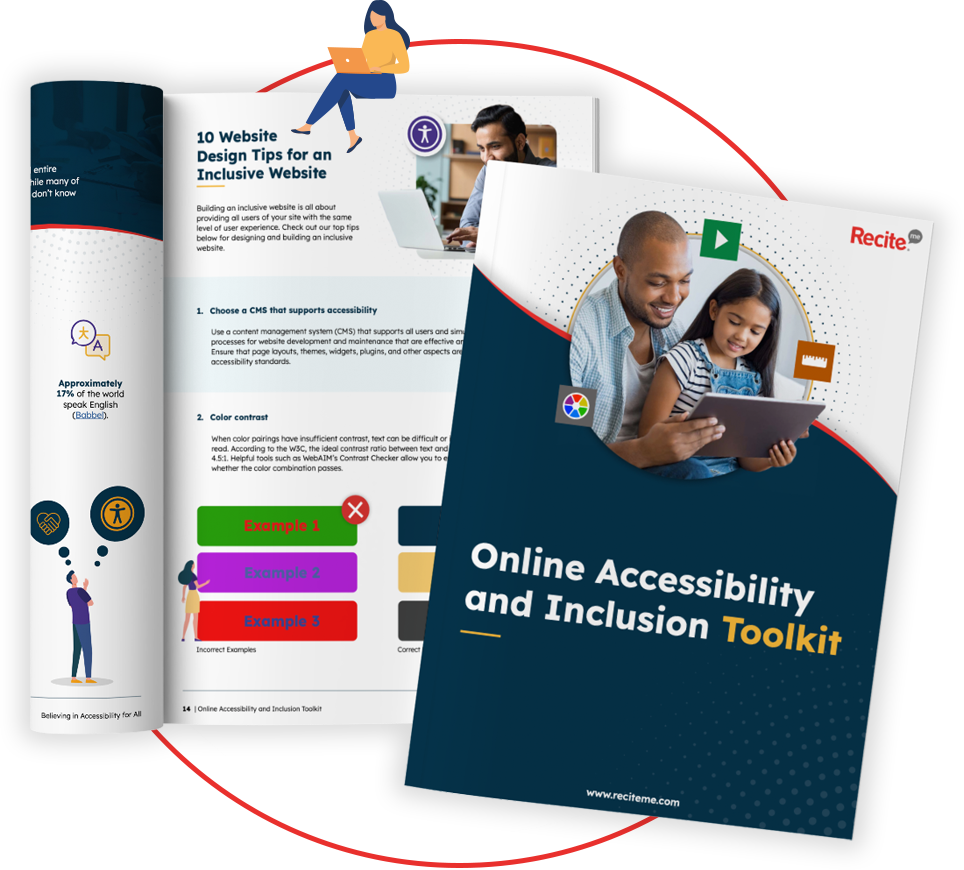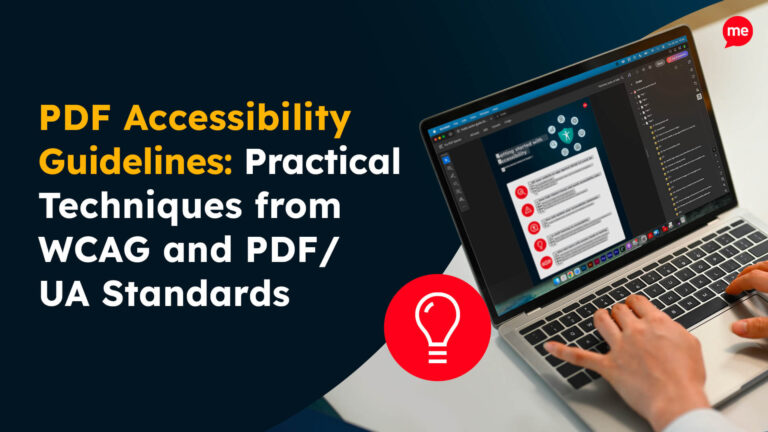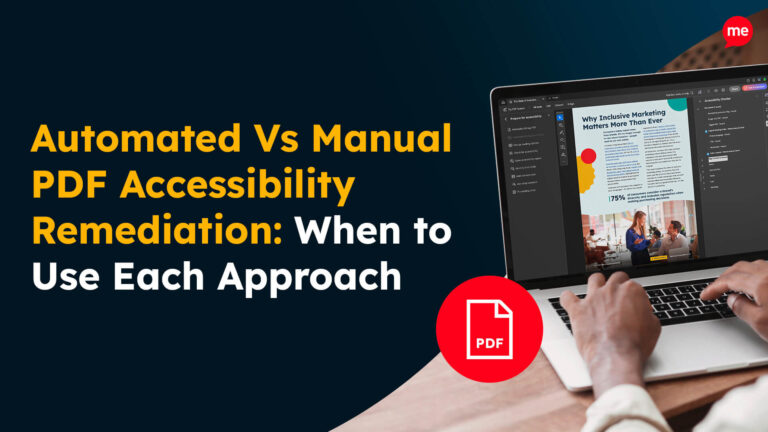When documents are properly designed and written, they are readable for people with disabilities. However, currently, many organisations develop documents with accessibility barriers, rendering a large group unable to properly access information.
For public organisations becoming accessible is not a choice, but rather amended in the law (EU Directive: EN 301 549). The directive dictates that they must become accessible by September 23rd, 2020. For private organisations it is a question of whether or not you want to be visible and reachable for everyone or only a limited group of people.
Why is document accessibility important?
Document accessibility allows people with disabilities to access and understand the information found in documents. This benefits individuals with visual, hearing, cognitive, or motor impairments as they can perceive, navigate, and interact with web content effectively.
Accessibility allows everyone, regardless of their abilities, to participate fully in education, employment, and everyday life. It promotes inclusivity, equal opportunity, and compliance with legal obligations, such as accessibility laws and standards. Overall, document accessibility enhances communication, empowers individuals, and promotes a more inclusive and equitable society.
A benefit to society
Making documents accessible benefits individuals and businesses – but also society as a whole. International web standards, such as the WCAG 2.1 developed by the W3C organisation, specifies the level of compliance required before a document can be considered accessible enough.
The legal aspect of accessibility conformance provides a rather convincing stimulus to make sure that documents are compliant according to the WCAG 2.1 guidelines. However, there are far more reasons to comply. It may feel somewhat tedious to recreate the workflow for how your organization creates documents. Especially if you feel like that the only reason for doing it, is a directive forcing you to comply. But there is a very clear rationale and it may make you feel better about complying than following a directive does.
And that is the importance of understanding the magnitude of people that you will be including and thereby enabling to access your documents.
Why you should become compliant
Digital inclusion and web accessibility mean understanding the relationship between the way people function in society and making sure everybody gets the same opportunity to participate. By recognizing the different needs of those who require accessibility tools, you gain a greater understanding of the sheer scope of the affected users and why accessibility is important.
A large percentage of the population falls into the group that requires assistive technology, such as screen readers, to use the Internet and/or read documents. Being dependent on a screen reader can make it particularly difficult to carry out ordinary tasks such as checking digital documents or fill in an online contact form. That is why, mandatory, or not, all documents and PDFs should be made web accessible.
Furthermore, if you shift your perspective from social value to literal value, consider that if your organization is not properly compliant and accessible, you effectively exclude up to 20% of your target group. This quite literally means that one-fifth of the population (worldwide, that is 1 billion people) can not effectively read your documents.
Today the majority of communication has transitioned into a digital format and most organisations do not think about the barriers this entails.
It is imperative that accessibility is implemented into everything you do, but especially in outbound communication and documents. Even if it seems like a minor issue to make the fonts more accessible, slightly larger or the colours more easily distinguishable – these improvements can mean the world to some people because the changes empower them to go about their day without requiring outside assistance.

Kim Erbo Christensen
Country Manager UK
Dania Software
E-mail: kec@daniasoftware.com
Telephone: +44 203 630 1566
Our 40-page Digital Accessibility & Inclusion Toolkit helps businesses break down online barriers and make a real impact. It offers practical advice on all aspects of digital accessibility, from writing an accessibility statement to accessible website tips and inclusive hiring.



